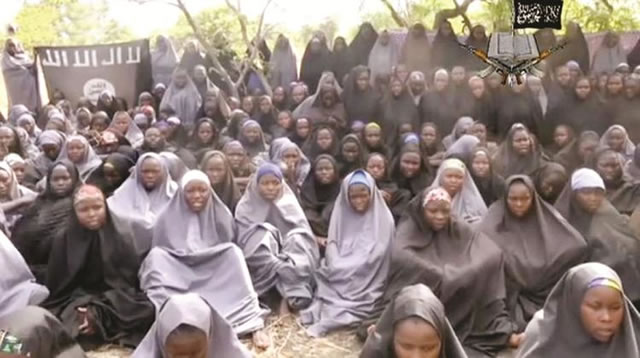They are victims but not part of peace-building

Vaidah Mashangwa
As we head towards the commemoration of the International Day of Peace, it is imperative to remember that when there is war and conflict, the impact of killings, forced displacements, torture, destruction and all the evils associated with war have a more devastating effect on women than men.
The International Day of Peace is observed annually on September 21. It is dedicated to world peace and emphasis is placed on the absence of war and violence. In any disturbances men are more likely to be killed, while women are abducted, raped and sexually abused.
The Boko Haram example in Nigeria is a clear testimony of the vulnerability of women and girls in war torn countries where unrest, conflict and war prevails. Boko Haram kidnapped more than 200 school children in Northern Nigeria. In the meantime, the West and African countries such as Cameroon, Chad, Niger, Nigeria, Benin, France, Canada, US, and the UN resolved to eliminate Boko Haram and free the girls. Ever since this proclamation more civilians have been killed in Nigeria.
Zimbabwe can be singled out as one of the countries which have managed to maintain peace and order since independence. The peace that prevailed during the July 2013 harmonised election bears testimony to this. Apart from that Zimbabwe managed to host the United World Tourism Organisation jointly with Zambia and delegates commended the peace and tranquillity prevailing in Zimbabwe.
For centuries, sexual violence has been enforced as a tactic of warfare. It is unfortunate that such cases are not well documented and there is underreporting by the victims. In Rwanda for example it is documented by UN Women in the 2011-12 Progress of the World’s Women Report that 250,000 to 50,000 women were raped in less than 100 days as part of the 1994 genocide.
Apart from that, in Bosnia and Herzegovina between 20,000 and 60,000 Muslim women were subjected to sexual violence in rape camps. In Eastern Democratic Republic of Congo at least 20,000 cases of sexual violence involving women and girls have been documented since 1996. In Liberia a number of women were victims of sexual violence as well.
It is unfortunate that during the process, some of the women actually fall pregnant and the agony that the women go through is terrible. While in some instances the pregnancy can be terminated, the effects can be long lasting.
Other effects of war include forced labour, forced recruitment, physical torture, arbitrary detention, looting or property destruction and forced displacement. All this negatively affects women as they are the caregivers.
Destruction of social infrastructures and reduction of government spending on social services is heavily felt by women as they expected to provide for the family despite the situation at hand.
As if this is not enough, when the women try to flee during the conflict, they continue to be sexually harassed during transit, in camps and this may continue after ceasefire if not well monitored. Women constitute 80 percent of all the refugees and displaced persons world-wide. Women are generally peace-builders yet they are not integrated into peace-building processes.
While the United Nations Security Council Resolution on women, peace and security in 2000 highlighted the need to ensure women’s participation in peace-building, only one in 40 peace treaty signatories over the past 25 years has been a woman (Gender and Development 2013 Volume 3).
The participation of women in the armed struggle shows that women are not always victims of war but that they are able to participate side by side by their male counterparts in warfare. In this regard, a number of Zimbabwean women participated in the armed struggle. In 1951 for example China started recruiting female military pilots and in 1952 women started serving in the South Korean military.
The children suffer from the same predicament as women during war and conflict. Despite the United Nations treaty prohibiting the use of children in in armed conflict, which has been ratified by 126 countries, about 250,000 child soldiers are currently involved in armed conflicts world-wide.
The girl child is equally affected as she is constantly exposed to abuse, physical and psychological abuse, heavy workload and reproductive health issues such as unwanted pregnancies and child birth.
At times prostitution by young girls is also rife in places affected by war and conflict. While this also affects women, girls are more vulnerable as they are usually not fully developed physically, emotionally and psychologically.
It is estimated that 40 percent of armed forces worldwide incorporate children. Most of the children are kidnapped and their tasks include cooking, fighting, being messengers, spies and sex slaves according to Health Issue 3, 2014.
There have been efforts by Unicef to encourage the release of children in war-torn countries such as Afghanistan, Angola, Burundi, Colombia, Cote d’ Ivoire, the Democratic Republic of Congo, Liberia, Mozambique, Nepal, Rwanda, Sierra Leon, Somalia, Sri Lanka, Sudan and Uganda.
The aftermath of war is also heavily felt by women as most of them become widows and those with missing husbands face the same fate as widows as they are left to fend for the children. It is estimated that in some conflicts 96 percent of the detainee population are men and 90 percent of the missing are men. Widowhood affects the ability of widows to access basic goods and services as well as problems to inheritance of land and property.
For stability in peace-building processes it is important to ensure that women are fully involved. While the women can be victims they are not powerless as they can be equal participants as their male counterparts in the maintenance and promotion of peace and security in any given country.
Vaidah Mashangwa is the Provincial Development Officer for Bulawayo in the Ministry of Women Affairs, Gender and Community Development. She can be contacted on 0772111592, email: [email protected].










Comments